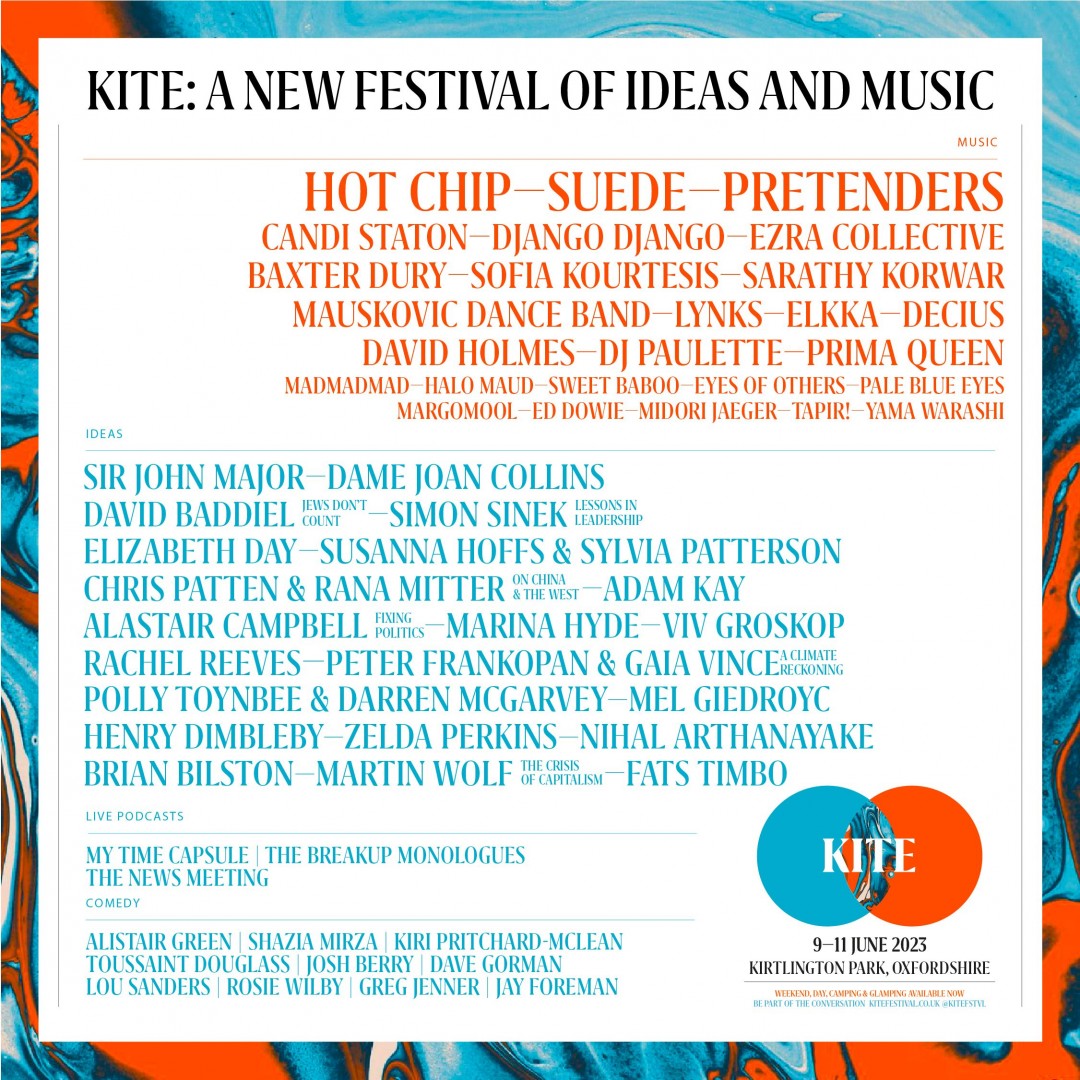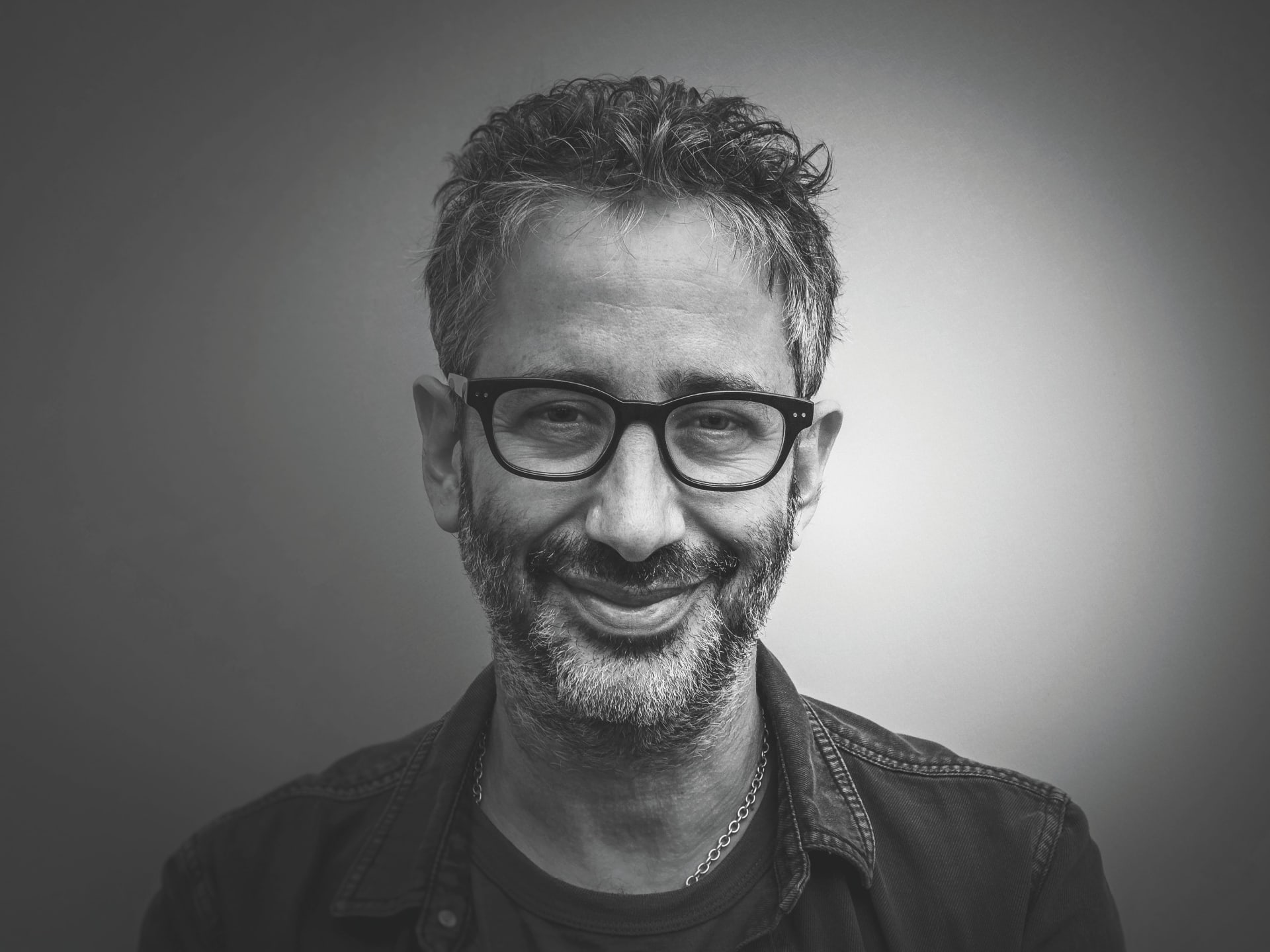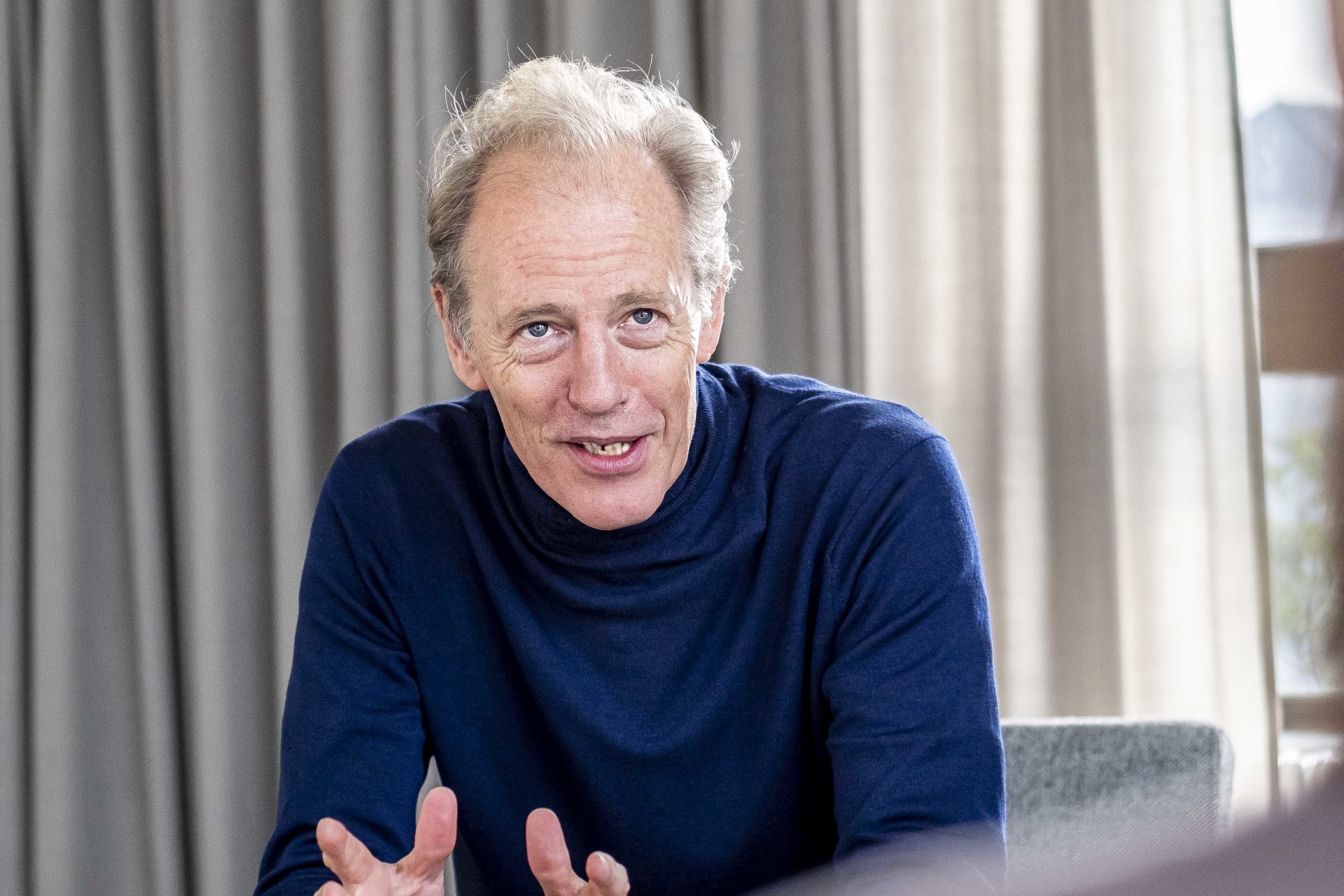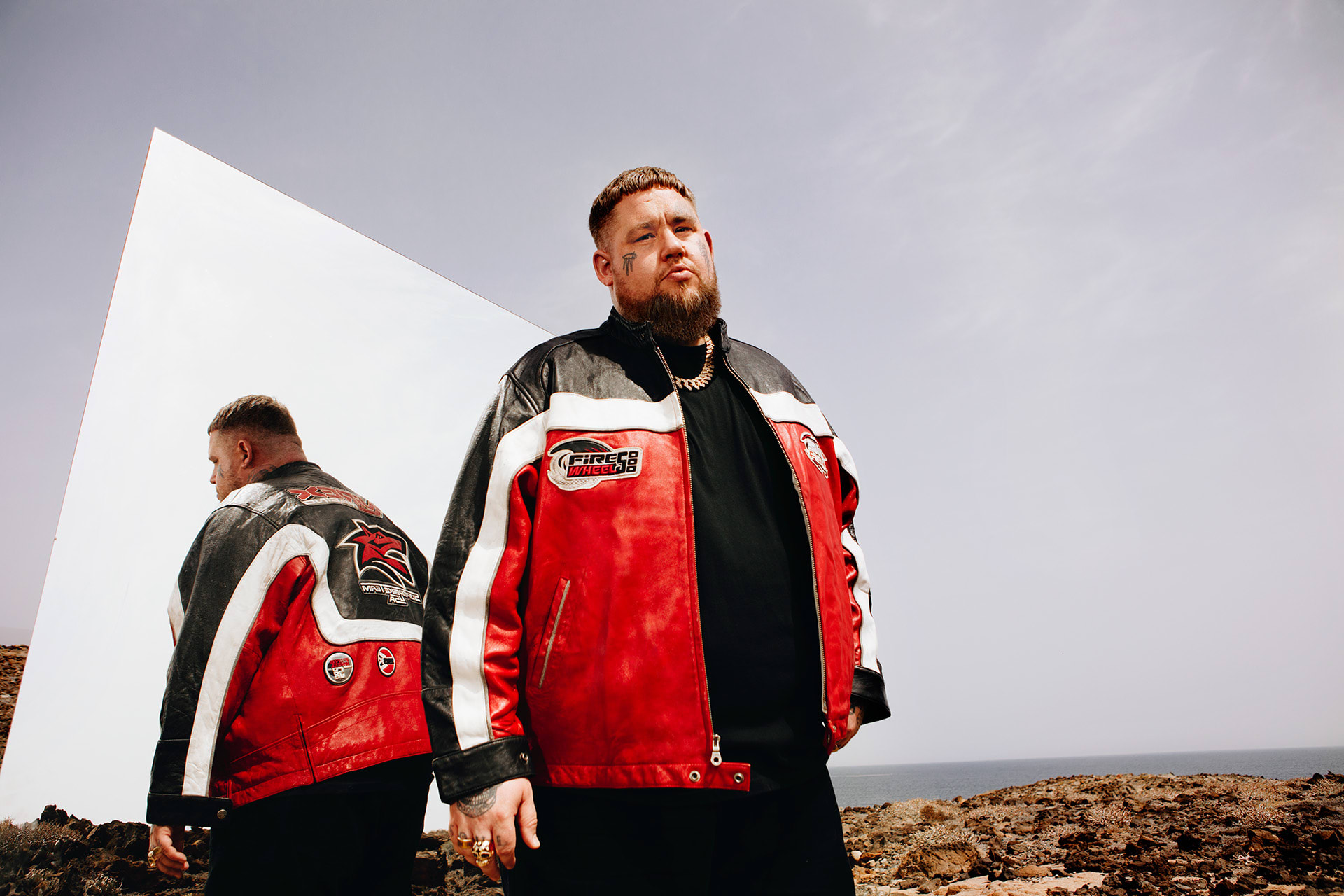Like many of us I suspect, most of my adult life has contained David Baddiel in one form or another. Student days watching The Mary Whitehouse Experience; trying to decide who I fancied more during the ‘rock’n’roll’ years of Baddiel and Newman; finally finding football interesting courtesy of Baddiel and Skinner’s Fantasy Football League. As he has grown older, so have I.
More recently he has spoken to me as a polemicist, producing books and documentaries – and not forgetting his huge success as a children’s author. Then his Twitter-self started to focus on another aspect of shared experience: being Jewish. Or more specifically being an atheist Jew. His book Jews Don’t Count – The Times Book of the Year 2021 – was a bestseller, redefining for many, the Jewish experience. His next, The God Desire, explores atheism and has just been published. This summer he will be in Oxfordshire at Kite Festival with plenty to say...
What can we expect from your conversation with Matt D’Ancona at Kite Festival?
I’ve just had a new book out, The God Desire, which is about my particular version of atheism. I don’t know if he's going to ask me about that, or about Jews Don’t Count or stand-up or whatever and I’m happy to answer questions about any of it. It’s an Ideas festival so if he asks about Jews Don’t Count then I will be talking about my continuing theory of how within the conversation around identity politics, ethnicity, discrimination, inclusion and representation that everyone is having that Jews continue to be fairly low down in the mix and why I think that is. I’d quite like to talk about The God Desire just because it’s my new book and so I wouldn’t mind talking about the particular type of atheist I am. That will be up to him.
I’m sure it will be a wide-ranging conversation because he's part of Tortoise and they tend to do quite big articles about intellectual stuff. It’s quite difficult in Britain to be someone who is an intellectual – it sounds ridiculous, I think it sounds silly me saying it now, but I wouldn’t mind if there was a space for those conversations to exist in Britain. There does, at things like the Kite Festival but you don’t see it on the telly. I’m happy to continue to be funny and entertaining but I also quite like the idea that I’m writing books that allow for a bit of heavyweight conversation, which will happen with Matt.
In your documentary Social Media, Anger and Us you talk about how social media encourages us to ‘boil our identity down to a badge’. Your Twitter bio is ‘Jew’ and your Instagram bio is ‘Comedian, Storyteller’. How do you generally describe yourself?
The reason I choose Jew on Twitter – which was a long time ago, in 2009 – is mainly because I thought it was funny but there’s also a serious element to it. As far as I’m aware it is the only word in the English language that is both an accurate description of my ethnicity but also it can be used as an insult. So the reclamation of it felt to me like an interesting thing to do as the one word in my bio.
I actually think storyteller is quite good overall to describe me. I started out as a comedian; I started off doing an art form that tells stories on stage to get laughs. Then I moved into telling stories in books and then in film and documentary. It feels to me that I’m still telling a story.

Photo credit Tessa Hallmann
As I’ve got older I find fewer things funny and there are more things that I want to say. Has that been your experience?
If I look at the people who are selling out arenas they’re all late 20s or early 30s and so I don’t know if that made me think whether it’s age appropriate for me to keep doing stand-up (although, I’m thinking about filming [my recent shows] for TV). I’m still really happy to be doing comedy, but in terms of writing books like Jews Don’t Count or The God Desire or doing documentaries, I guess for me personally there are things I want to say that cannot completely be contained within comedy. Maybe that’s a failure as a comedian – some other comedians might claim you can say anything you like within comedy and maybe that’s true, but I found I couldn't do it. The way that I make it right in my head is that almost everything that I do including The God Desire and Jews Don’t Count will have funny things in it. Turning to serious subject matter and a more serious way to express myself doesn't mean now I can never have a joke again.
I always find that weird that people think that: there’s a bad review of The God Desire in The Telegraph which says it’s very funny, like it’s a bad thing. It’s almost like there’s a sense in which one of the things that’s difficult is the idea that I might have written a serious book about atheism and religion but it is still funny. For me, there’s no contradiction there because often jokes are very illuminating when you’re trying to be serious.
When speaking about The God Desire you’ve been widely quoted as describing football as replacing a God-shaped hole. Does that mean when you are suffering by watching your team lose you are having a better religious experience?
Ok, so first of all I think there are many, many examples of the ways in which there is a desire for something eternal, something bigger than ourselves, something you can pin your identity on and say this is who I am. Football is one of the things that provides that, it’s not just football.
My basic position about God is that God is a projection of desire; we are all desperately in need of comfort from the fear of death, the fear of meaningless, so we create the idea of God as a way around that. We create hell because it strengthens the idea of heaven. It makes life more meaningful if bad exists as well as good, if hell exists as well as heaven, that helps our idea that our lives have order and structure and they have meaning.
You put so much of yourself out there. How do your kids feel about you having an opinion?
My daughter’s fine with it generally; I think my son is more ironic about me. He basically spends a lot of time taking the piss out of me in a very funny way – he's really a funny bloke, and the way he deals with me being me is by constantly making fun of me and who I am. He does impressions of me and what I might say in any situation and he's really brilliant at doing it.
I am a very proud father and I’m not going to get to a point where I’m like, how dare you take the piss out of me I’m your father and I’m an important man; that would be wanky.
Is there a difference between you on a stage, you in front of a camera, you on Twitter, at home – are there lots of different David Baddiels?
They’re all the same. Despite doing lots of things I don't have lots of faces. I’ve only got one face and one voice. I’m very bad at trying to be something I’m not. I can’t even do a Welsh accent and my dad was Welsh.
I’m only able to sort of be myself and I can do it in lots of different ways I can do it as a film-maker, I can do it as a storyteller in children's books, I can do it as a polemicist but it’s still very much me saying what I think or making up a story that feels close to me.
I wanted to congratulate you on the news that The Parent Agency is to be adapted into a West End musical and I believe you have another children’s book coming out in May.
Yes, it’s called Only Children. It’s three quite long short stories. Two are rewritten versions of older stories whereas the third is a new one, set in 1978 which is unusual for a children’s story. It’s totally about the fact that me and my brothers and my mum and dad used to go to Swansea every year for our summer holidays to see my dads’ parents and it was incredibly dull. It’s a story that imagines this family going on a really boring holiday in a really boring town and they meet a kind of sprite child there who lives on an island in the sea. It comes to show them that – in fact – it’s really fun. It never happened in 1978 in Swansea, but I’m imagining that it might.
So, final question; which of your achievements has made you the proudest?
I don’t know really. You know when politicians say ‘I don’t accept the premise of the question’ in that annoying way, well...I don’t mean to be dismissive at all, but I don’t think of what I do much in terms of pride.
It’s an odd thing: a lot of people have told me in a really fantastic way that Jews Don’t Count shifted the whole way they think about their identity, and it’s brought a lot of Jewish people out from the Jewish closet. So that’s really great but I don’t think of being more proud of that than for Three Lions which is a completely different thing. I love the fact that football fans took that song onboard in a really spontaneous way in 1996 and have stuck with it for 30 years. That’s brilliant as well.
I like being able to do things and express myself. Sometimes you write something and nothing happens, it’s a strange job from that point of view. But, when it does happen it’s really lovely when that means something to people.

David Baddiel will be in conversation with Matt D’Ancona on Saturday 10 June at Kite Festival. Also confirmed for the IDEAS stages are Rachel Reeves MP, Dame Joan Collins, Sir John Major and Susannah Hoffs. Music acts include Hot Chip, Suede, the Pretenders and Candi Staton.
For more details and tickets visit kitefestival.co.uk









